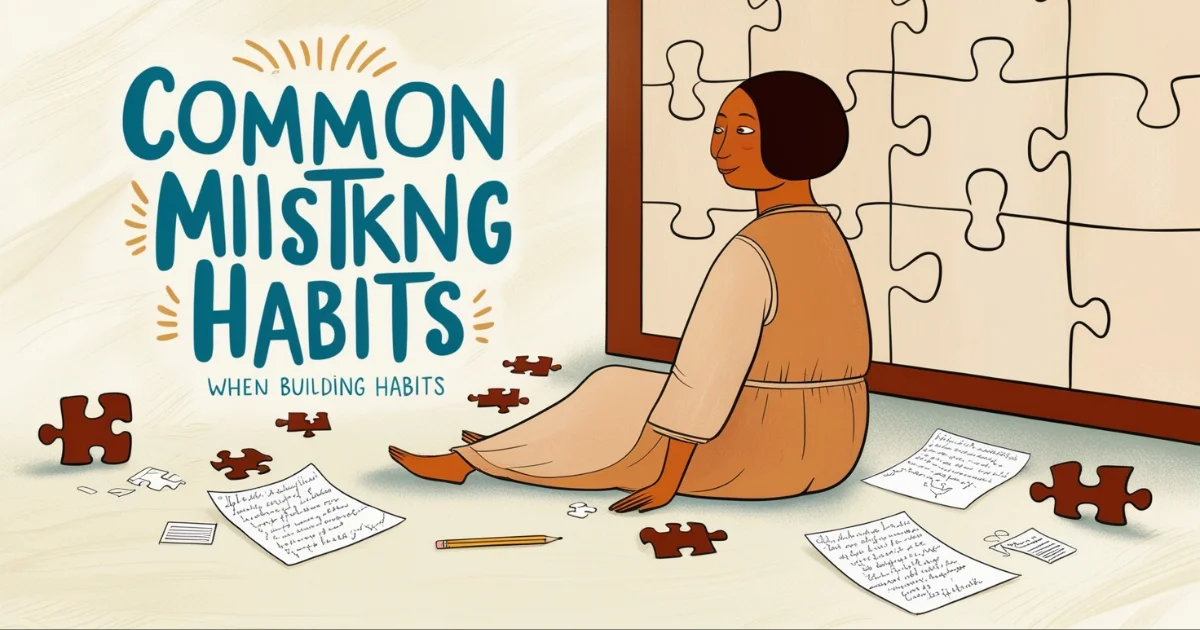What Is The CrossFit An Impressive And Ultimate Guide in 2024
Introduction
Daily habits are the small actions we do consistently over time. They might seem insignificant at first, but they add up to make a big difference in our lives. Whether brushing our teeth, exercising, or spending a few minutes planning our day, these habits can shape our futures. The power of daily habits lies in their ability to make positive changes almost effortlessly. Through consistency, these habits can lead to success in many areas, such as health, personal growth, and career advancement. By building healthy daily habits, we can achieve our dreams one small step at a time.
What are Habits?
Habits are actions we perform regularly, often without thinking. They become part of our routine, like brushing our teeth or drinking water first thing in the morning. Habits are automatic behaviors that help our minds conserve energy since we don’t need to make new decisions every time. Routines are similar but may require more effort and attention, like following a workout schedule. Habits become so ingrained in our minds that we can do them without much thought, making them powerful tools for shaping our lives over time.
Why Are Habits So Important?
Habits play a major role in shaping who we are and how we live. They influence our choices, behaviors, and even our mindset. Developing positive habits makes us more likely to make better decisions, stay focused on our goals, and maintain a balanced life. However, bad habits can make life more challenging. They often lead us to choices that don’t align with our values, causing setbacks. That’s why building positive habits can lead to a happier, healthier, and more successful life.
Types of Habits
Habits can generally be divided into three categories:
Positive Habits – These habits add value to our lives, like exercising, eating healthy, and reading. They support our health, growth, and well-being.
Negative Habits – These habits can harm us, like smoking, excessive screen time, or overeating. Negative habits often feel good in the short term but have long-term consequences.
Neutral Habits – These habits don’t significantly impact us, such as choosing which hand we use to open doors. They are part of our daily routines but don’t necessarily affect our goals or well-being.
Understanding the type of habit we are building can help us decide which ones to focus on and improve.
The Science Behind Habits
Our brain forms habit through a process called “habit loops,” which consist of three parts: the cue, the routine, and the reward. For instance, when you’re tired after work (cue), you might grab a snack (routine), and feel more energetic (reward). Each time this loop repeats, your brain reinforces the behavior. Over time, this action becomes a habit. Repetition is key to habit formation; the more often we repeat an action, the more automatic it becomes, eventually becoming a part of who we are.
How Small Habits Lead to Big Changes
Small habits may seem insignificant, but they have a “compounding effect.” Think of saving a dollar a day—it might seem small, but over time, it grows into a significant amount. Similarly, small daily actions add up, leading to meaningful change. For example, reading for just 10 minutes every day can add up to over 60 hours of reading a year. Small actions repeated consistently can help us achieve big goals.
How Long Does It Take to Form a Habit?
Many believe it takes 21 days to form a habit, but research shows it often takes longer. On average, building a new habit takes about 66 days, although the exact time varies for everyone. The key is consistency and patience. Developing a habit isn’t about perfection but about showing up every day until it becomes second nature.
Building Good Habits
Creating good habits is a gradual process. Start by setting small, achievable goals, like drinking a glass of water each morning. Once this becomes routine, add another small goal. Celebrate your progress, as even small achievements can motivate you. Over time, these positive habits will build on each other, making them easier to maintain and integrate into your life.
Breaking Bad Habits
Breaking a habit is harder than starting a new one because the brain already associates it with a reward. To break a habit, try replacing it with a positive action. For example, if you want to quit snacking on junk food, try keeping healthy snacks nearby. Patience and persistence are key, as it takes time to unlearn old behaviors and form new ones.
Creating a Habit Tracking System
Tracking habits can be a helpful way to stay consistent. By marking off each day you complete a habit, you create a visual reminder of your progress. This habit tracker could be as simple as a calendar, a checklist, or an app. The act of tracking itself can motivate you to keep going, as it’s satisfying to see a streak build over time.
Habits and Goal Setting
Habits help us achieve our goals by breaking them down into smaller, manageable steps. If your goal is to get fit, establishing habits like regular exercise and a healthy diet can make this goal more attainable. Setting daily habits creates a roadmap that brings you closer to your goals one step at a time.
Morning Habits for a Productive Day
A good morning routine sets a positive tone for the day. Effective morning habits include making the bed, practicing gratitude, and setting priorities. These actions help you start the day feeling organized and focused, making it easier to tackle challenges and stay productive throughout the day.
Night Habits for Better Sleep and Relaxation
Ending your day with a calming routine can improve sleep quality and relaxation. Good evening habits include reducing screen time, practicing mindfulness, and reading. These activities help relax the mind and body, preparing you for restful sleep and a fresh start the next day.
Common Mistakes When Building Habits

When starting new habits, common mistakes include taking on too much at once and expecting immediate results. It’s easy to get frustrated when progress feels slow, but consistency is more important than speed. Be kind to yourself, and remember that setbacks are part of the process.
Conclusion
Habits are the building blocks of our lives. Each day, the small actions we choose add up, shaping our future and guiding us toward success or setbacks. By building positive habits and being mindful of negative ones, we can set ourselves up for long-term success, health, and happiness. Remember, it’s not about making big changes overnight; it’s about taking small, consistent steps each day.
Relevant Post:
You May Like:
- 151 Bold Cycling Team Names For Your Events in 2024
- 125 Game-changing Bocce Ball Team Names for 2024
- 162 Best Flag Football Team Names in 2024
- 207 Best Volleyball Team Names That Are A Hit in 2024
- 273 Badminton Team Names: Smash Your Way to Victory!
- Top 276 Game-Changing Tennis Team Names for 2024
- 209 Best Softball Team Names Trending in 2024



